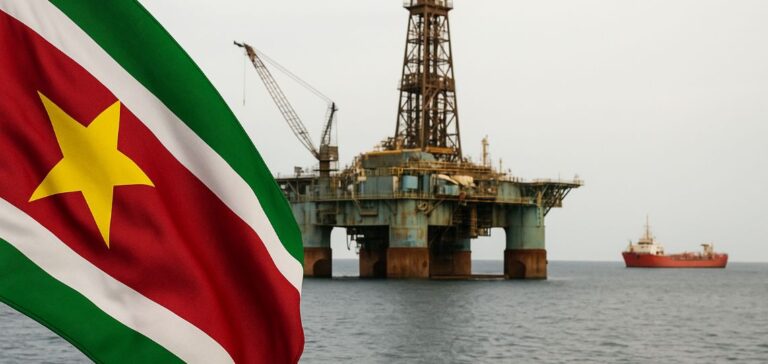The government of Suriname has implemented a programme called “Royalties for All,” distributing an individual bonus of $750 (around €665) to all citizens born before 1 January 2025. The initiative is funded from expected future revenues from offshore oil production, although extraction is not set to begin until 2028. Minister of Finance Stanley Raghoebarsing stated that the mechanism avoids borrowing or pledging future income.
The programme applies to 572,186 citizens and includes a 7% annual interest rate for unused accounts. An additional $150 bonus (around €135) will be granted to individuals who make no withdrawals. Only citizens over the age of 60 and those with disabilities can access the funds immediately. All others, including minors, must wait until 2028, when the country begins receiving actual oil revenue.
A scheme structured after TotalEnergies’ investment decision
The plan was developed by French advisory firm Lazard in July 2024. It was officially announced after the October declaration by TotalEnergies of its final investment decision in the offshore GranMorgu field. Located in deep waters off Suriname’s coast, the project involves a commitment of $10.5bn (€9.3bn) over four years, with production scheduled to start in 2028.
President Chan Santokhi announced the initiative in November 2024, describing it as a direct redistribution of a share of future oil revenue to the population. Less than a month before the general elections set for 25 May, in which Mr Santokhi is seeking a second term, the Finance Minister stated that the programme bears no electoral intent.
Deferred access and pledge of budget neutrality
Under the established terms, the majority of the population will receive the payment starting in 2028, once the oil income is realised. The government indicated that this structure ensures the programme’s sustainability without burdening future generations.
“This is not a loan, nor a sale or pledge of future oil revenues,” said Stanley Raghoebarsing during the presentation. He added that the programme is being implemented in a way that does not compromise the country’s long-term economic stability.






















